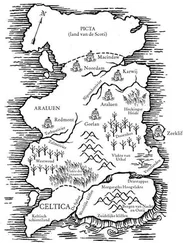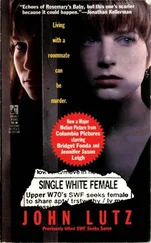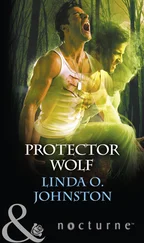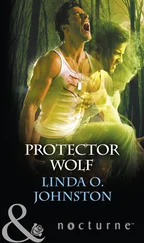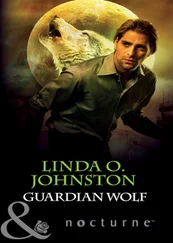I got as far as sliding one of the tapes out from the row and setting it down on my desk next to the letters, like an arrow in the quiver. But of course nobody threatening to kill me was about to send a return address. I hope they give you the chair. And then I pictured myself sending some incomprehensible tape to a stranger whose hatred for me was a pure flame, bright and clear: someone who’d hear a package drop in through his mail slot one day and find, when he opened it, this unexpected, undecodable thing. And he’d turn it over in his hands, trying to make sense of it, and he’d feel all shaken up. Or confused. Or a little scared. And I said out loud: “No,” and did the deep breathing exercises I learned in relaxation class when I was seventeen. I made ready to tear the threats all into neat squares, but instead I put them in a manila envelope and tucked it into the bottom drawer in the filing cabinet, down among the scenes and byroads almost no one’s ever seen.
More mail came in the following weeks; I wondered if swells in volume meant there’d been some editorial in a local paper somewhere about a gunshot survivor who’d lured a couple of teenagers to a frozen grave. Maybe even a human-interest story on the evening news. Because it did seem to come in waves. There were appeals to my conscience to “turn myself in,” and prayer groups letting me know they were interceding with God on my behalf. I stopped reading this stuff fairly quickly; I either filed them or, if an envelope looked a little fat and came from an unknown source, I’d hand it over unopened to my lawyer, who I assume put them all into a filing cabinet of her own. But Dear Freak was the first one, out ahead of the actual news, a confusing and frightening intrusion into the dull quiet of my life, the first I had heard about any of this. The crazy road trip letters from Lance and Carrie had stopped suddenly, and I’d thought maybe their parents had made them come home; then there’d been radio silence for a week — two weeks — and then, Dear Freak, With the internet now , one of about seven letters from strangers that came that day, some supportive and some caustic, a stack around which the postman or somebody at the post office had put a rubber band. I remember the rubber band because I reflexively threaded it from my pinkie around my thumb to my index finger pistol-style and shot it across the room.
I was cleaning out the bathroom cabinets when I ran across the expired medications … they were tucked back in a corner. They formed a little squadron of yellow-brown bottles, hidden away from view. When I uncovered them their serial numbers and expiration dates met the incoming light like bits of unearthed code on ancient tablets. I had no conscious memory of hiding the bottles back there, away from sight; maybe they’d been getting pushed back gradually over the years, until at some point they reached a place where they were safe from scrutiny. But they were all upright, like orderly sentries, which worked somewhat against that theory.
There was a small, strange moment during which I had this feeling that someone was filming me, which was ridiculous, but it was that specific—”there’s a camera on me”—and then some hard ancient pushed-down thing, a thing I’d felt or thought or feared a long time ago, something I’d since managed to sheathe in an imaginary scabbard inside myself, erupted through its casing like a bursting cyst. I had to really struggle to recover. Something was dislodging itself, as from a cavern inside my body or brain, and this situation seemed so divorced from waking reality that my own dimensions lost their power to persuade. I craned my great head and saw all that yellow-brown plastic catch the light, little pills glinting like ammunition, and then my brain went to work, juggling and generating several internal voices at once: someone’s filming this; this isn’t real; whoever Sean is, it’s not who I think he is; all the details I think I know about things are lies; somebody is trying to see what I’ll do when I run across these bottles; this is a test but there won’t be any grade later; the tape is rolling but I’m never going to see the tape. It is a terrible thing to feel trapped within a movie whose plot twists are senseless. This is why people cry at the movies: because everybody’s doomed. No one in a movie can help themselves in any way. Their fate has already staked its claim on them from the moment they appear onscreen.
I looked away; I looked away. Held myself steady for a second and then got back to the work of the cleaning, shaking free of the crazy feelings, and I felt the corners of my mouth, half smiling. Most people can clean their bathroom cabinets without waking up any traumatic memories. Not me, not yet, I guess. But as Dave the art therapist told me once when he found me sulking: it’s not so bad to be special. My journey, he said, was longer and slower. He looked me in the eyes, which impressed me, and told me that my good fortune was to learn what special really meant.
I raised my spray bottle, filled with plain white vinegar solution, and I blasted the mirror cheerfully, wiping the glass with a wadded newspaper until the vinegar dried. Then I sank an easy two into the wastebasket on the other side of the toilet, and I reached back into the cabinet without thinking too hard. I set the old medication bottles down on the counter one at a time, and after I’d finished clearing out the rest of the cabinet, I took a closer look at them.
I was eleven, maybe twelve, I’m not completely sure, when I was given a small black-and-white television and told I could keep it in my room. My grandmother had just died; she was my mother’s mother, and she’d lived most of her life in one house, just a mile or so away from where we settled when we finally circled back to Montclair. When she died, she left behind a room all full of grandma things, things too familiar to be given to Goodwill but too yellowed to be kept out in plain view. In the wake of her death a small windfall came my way. Besides the television, I got two transistor radios; a blanket that smelled, as I would later learn, like a hospital smells; and a hollow stone statue of an owl, which had been sitting atop the wall-mounted heater in my grandmother’s room for as long as I could remember.
Both the owl and the television became immediate touchstones. I talked to the owl sometimes, and I’m not sure why; I don’t remember what I told it or when I stopped doing it. I just remember that it was a thing I did for a while. The TV I used like a night-light. I plugged it in and left it on.
This was back in the age of networks and UHF. Most stations signed off sometime toward two in the morning. But on summer nights I’d stay awake until three, and sometimes later, because a pulsing feeling in my stomach made it hard for me to want to sleep. In my room down the hall with my face close to the bright screen, cross-legged. Close enough to the screen to describe variations in the grain of the dust that would form on the glass. Once in a while I’d wipe it clean with the palm of my hot, oily hand. I would watch anything; I believed everything. I could convince myself that I was the last person in the world, watching the screen after the station had signed off, sinking into the blur. Sometimes I’d fall asleep on the floor, my face in the carpet, and I’d wake up with the TV still on, my head near the speaker, local news droning. My mom would come in later, in the morning, and say it wasn’t good for me, but how could I explain?
What I had on those nights were as near as I had come since childhood to religious experiences. Lots of people who survive personal traumas get close to God. My accident didn’t do that for me. It was like a cleansing wind: mystic thoughts would always be hard to come by for me afterward. Those times of snowy vision I’d had in the summers after my grandmother died subsequently became the stuff of personal myth for me. My parents had their own version of it, which was linear; it told a story about me staying up late and reading things and watching things that told me to do something awful, of staring too long at a static screen. It’s because they thought this, and because they maybe still do, that I can’t communicate with them. I can’t explain to them what those nights were like except to say that they gave me a sort of shelter. “Shelter from what?” they would say if I managed to put it to them that plainly. “Why did you need shelter?” Some things are hard to explain to your parents. Some things are hard to explain, period, but your parents especially are never going to understand them.
Читать дальше

